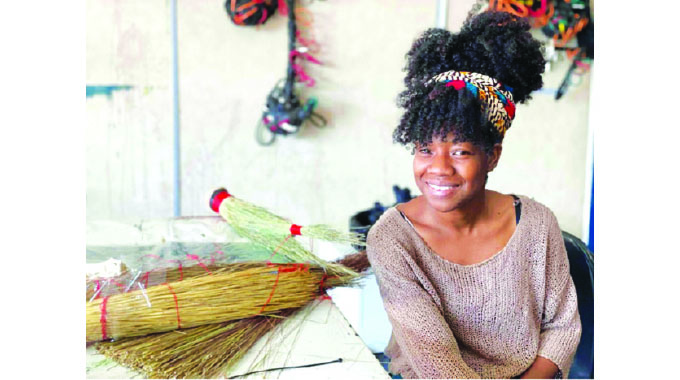Visual artist in Toronto Biennial

Kundai Marunya-Arts Correspondent
Following a successful first major solo exhibition titled “Ranezuro Rangu Ngariziye” (My Yesterday Should Know), local installation artist Anne Zanele Mutema is taking part in the second edition of the Toronto Biennial of Art in Canada.
The biennial, which kicked-off on March 25, runs until June 5.
Mutema’s installation “Systemic Necropolis” is part of an exhibition project titled “Ngozi: We Might Listen for the Shimmerings” organised by Zimbabwean- born and Canada based curator Chiedza Pasipanodya.
The exhibition is part of Pasipanodya’s 2022 Curatorial Fellowship programme made possible by the generous support of TD Bank Group through the TD Ready Commitment, with support from the Toronto Arts Council and the Ontario Arts Council.
“Ngozi” also features the work of Buhlebezwe Siwani and Timothy Yanick Hunter.
Mutema said “Systemic Necropolis” is an installation engaged in a philosophical inquiry on the nature of whether we are given our identities by the objects that surround us, the use-value they provide or whether they in fact afford identities to us.
“Systemic Necropolis is a glorified memorial site for my memories. The mutsvairo (brooms) functions as a time capsule, an object embodying an event,” she said. “The red string represents a bloodline that connects the memories. Stitching serves as a cathartic process in my life.
“The (plastic) cocoons are different from one another just as each memory embodies and occupies a different space, a distinct point in time. Systemic Necropolis is a coming together of the event.”
Her exhibition “Ranezuro Rangu Ngariziye” (My Yesterday Should Know), which ran at First Floor Gallery in Harare is one of the contemporary art space’s most visited showcase to date.
Built around the idea of challenging the push by media, politics and commerce to reduce citizens’ decisions to black and white, Mutema creates experiences which coax each person towards focusing on their being and feeling to recapture their personal vision and belief and not one they have been taught or sold.
“We are raised to believe in certainties,” explains Mutema. “We are also taught to believe in certain immutable value — rights and wrongs, the good and the evil. Then real life comes in and we are taught to be realistic, which means, starting with our values.”
Mutema’s practice invites her audience to consider alternative belief systems through the idea of an event defined for her as a phenomenon located at a single point in time in the context of self, culture and history.
“These realistic shades of grey, are less about nuance and more about compromise, less about engaging with complexity and more about cognitive dissonance,” she said.
“Challenged by the world toward ambiguity, but raised to crave certainty, we are often left dis-empowered and open to suggestion, thereby becoming pliable subjects of religious, commercial and political manipulation.”









Comments